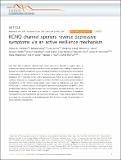| dc.contributor.author | Friedman, Allyson K. | |
| dc.contributor.author | Juarez, Barbara | |
| dc.contributor.author | Ku, Stacy M. | |
| dc.contributor.author | Zhang, Hongxing | |
| dc.contributor.author | Calizo, Rhodora C. | |
| dc.contributor.author | Walsh, Jessica J. | |
| dc.contributor.author | Chaudhury, Dipesh | |
| dc.contributor.author | Zhang, Song | |
| dc.contributor.author | Hawkins, Angel | |
| dc.contributor.author | Dietz, David M. | |
| dc.contributor.author | Murrough, James W. | |
| dc.contributor.author | Ribadeneira, Maria | |
| dc.contributor.author | Wong, Erik H. | |
| dc.contributor.author | Neve, Rachael L. | |
| dc.contributor.author | Han, Ming-Hu | |
| dc.date.accessioned | 2017-07-26T19:12:09Z | |
| dc.date.available | 2017-07-26T19:12:09Z | |
| dc.date.issued | 2016-05 | |
| dc.date.submitted | 2016-03 | |
| dc.identifier.issn | 2041-1723 | |
| dc.identifier.uri | http://hdl.handle.net/1721.1/110861 | |
| dc.description.abstract | Less than half of patients suffering from major depressive disorder, a leading cause of disability worldwide, achieve remission with current antidepressants, making it imperative to develop more effective treatment. A new therapeutic direction is emerging from the increased understanding of natural resilience as an active stress-coping process. It is known that potassium (K+) channels in the ventral tegmental area (VTA) are an active mediator of resilience. However, no druggable targets have been identified to potentiate active resilience mechanisms. In the chronic social defeat stress model of depression, we report that KCNQ-type K+ channel openers, including FDA-approved drug retigabine (ezogabine), show antidepressant efficacy. We demonstrate that overexpression of KCNQ channels in the VTA dopaminergic neurons and either local infusion or systemic administration of retigabine normalized neuronal hyperactivity and depressive behaviours. These findings identify KCNQ as a target for conceptually novel antidepressants that function through the potentiation of active resilience mechanisms. | en_US |
| dc.description.sponsorship | National Institutes of Health (U.S.). Ruth L. Kirschstein National Research Service Award (F31 MH095425) | en_US |
| dc.description.sponsorship | National Institutes of Health (U.S.). Ruth L. Kirschstein National Research Service Award (T32 MH 087004) | en_US |
| dc.description.sponsorship | National Institutes of Health (U.S.). Ruth L. Kirschstein National Research Service Award (F32 MH096464) | en_US |
| dc.description.sponsorship | National Institute of Mental Health (U.S.) (NIMH R01 MH092306) | en_US |
| dc.language.iso | en_US | |
| dc.publisher | Springer Nature | en_US |
| dc.relation.isversionof | http://dx.doi.org/10.1038/ncomms11671 | en_US |
| dc.rights | Creative Commons Attribution 4.0 International License | en_US |
| dc.rights.uri | http://creativecommons.org/licenses/by/4.0/ | en_US |
| dc.source | Nature | en_US |
| dc.title | KCNQ channel openers reverse depressive symptoms via an active resilience mechanism | en_US |
| dc.type | Article | en_US |
| dc.identifier.citation | Friedman, Allyson K., Barbara Juarez, Stacy M. Ku, Hongxing Zhang, Rhodora C. Calizo, Jessica J. Walsh, Dipesh Chaudhury, et al. “KCNQ Channel Openers Reverse Depressive Symptoms via an Active Resilience Mechanism.” Nat Comms 7 (May 24, 2016): 11671. | en_US |
| dc.contributor.department | Massachusetts Institute of Technology. Department of Brain and Cognitive Sciences | en_US |
| dc.contributor.department | McGovern Institute for Brain Research at MIT | en_US |
| dc.contributor.mitauthor | Neve, Rachael L. | |
| dc.relation.journal | Nature Communications | en_US |
| dc.eprint.version | Final published version | en_US |
| dc.type.uri | http://purl.org/eprint/type/JournalArticle | en_US |
| eprint.status | http://purl.org/eprint/status/PeerReviewed | en_US |
| dspace.orderedauthors | Friedman, Allyson K.; Juarez, Barbara; Ku, Stacy M.; Zhang, Hongxing; Calizo, Rhodora C.; Walsh, Jessica J.; Chaudhury, Dipesh; Zhang, Song; Hawkins, Angel; Dietz, David M.; Murrough, James W.; Ribadeneira, Maria; Wong, Erik H.; Neve, Rachael L.; Han, Ming-Hu | en_US |
| dspace.embargo.terms | N | en_US |
| dc.identifier.orcid | https://orcid.org/0000-0002-3854-5968 | |
| mit.license | PUBLISHER_CC | en_US |
